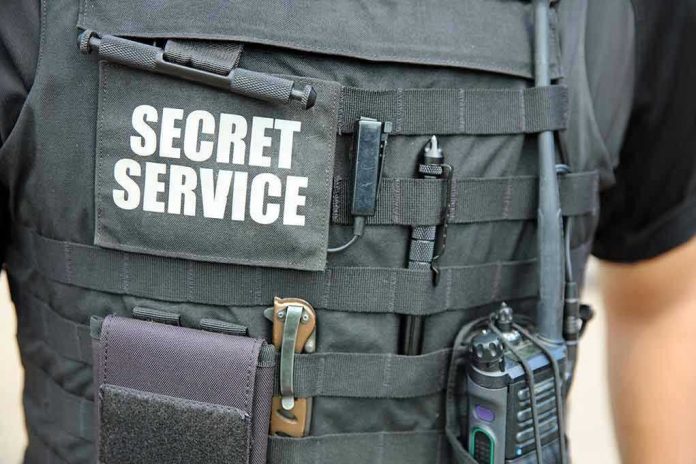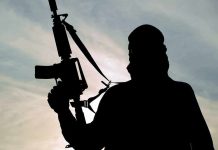
Six Secret Service agents were quietly suspended without pay after the near-fatal attempted assassination of Donald Trump in Butler, Pennsylvania, exposing a level of operational failure that should have every American demanding answers about who is really protecting our leaders—and our Constitution.
At a Glance
- Six Secret Service agents suspended for security failures during the Trump assassination attempt in Butler, PA
- Director Kimberly Cheatle resigned following bipartisan outrage and congressional hearings
- Congressional investigations found the attack was preventable and highlighted serious agency deficiencies
- New security protocols, drones, and command posts being deployed—after the fact
Secret Service Suspensions Reveal Systemic Breakdown
The attempted assassination of Donald Trump on July 13, 2024, at a Pennsylvania campaign rally was a shocking reminder of what happens when government agencies charged with protecting our leaders and institutions drop the ball. Six Secret Service agents, including supervisors and front-line staff, were suspended without pay for up to 42 days—an unprecedented disciplinary action that lays bare the magnitude of their failure. These agents were later placed on restricted duty, their responsibilities slashed, a slap on the wrist for mistakes that nearly changed American history. The shooter, Thomas Matthew Crooks, managed to position himself on a rooftop 150 yards from Trump, outside the established security perimeter. Despite supposed preparations and a swarm of law enforcement, Crooks was able to open fire, injuring Trump, killing one rally attendee, and wounding two others. These facts are not just embarrassing—they are infuriating for anyone who believes government’s first job is to protect the people and the republic. The Secret Service has long been held up as a gold standard of professionalism, but this incident blew a hole straight through that myth.
Leadership changes followed swiftly. Secret Service Director Kimberly Cheatle resigned amid bipartisan outrage, congressional hearings, and a media firestorm. But do not be fooled—removing one leader does nothing to fix a culture riddled with complacency and bureaucracy. Deputy Director Matt Quinn, now in control, admitted publicly, “We aren’t going to fire our way out of this. We’re going to focus on the root cause and fix the deficiencies that put us in that situation.” That is cold comfort for Americans who watched the chaos in Butler and wondered: If this is how the government treats the protection of a former President and leading candidate, what chance does the average citizen have?
Congress Points to Preventable Catastrophe and Demands Accountability
Both House and Senate investigations were unambiguous: this attack was preventable. The failures ran deep—poor intelligence sharing, an unsecure perimeter, and a lack of real-time communication with local authorities. These aren’t minor oversights; they are the kind of cascading blunders that occur when bureaucracy trumps common sense and mission focus. Congress isn’t letting the agency off the hook, and neither should the American people. The reports highlighted that despite credible threats and clear vulnerabilities, the Secret Service failed to act. The agency is now scrambling to retrofit security practices, rolling out military-grade drones and mobile command centers—innovations that should have been standard, not afterthoughts deployed in the wake of a catastrophe. This is government in action: always reactive, never proactive, and always too late for those who pay the price.
The FBI, meanwhile, continues to investigate Crooks’ motives, labeling the attack both an assassination attempt and potential domestic terrorism. Yet, for all the resources poured into post-event investigations, the real question remains unanswered: Why did no one in charge see what was coming? The Secret Service, battered by public and congressional scrutiny, faces a long road to rebuild trust—and that trust is not granted, it is earned.
Public Confidence Erodes, Reforms Come Too Late
The fallout from the Butler attack is more than bureaucratic. It’s a gut punch to public confidence in federal law enforcement. Trump’s supporters, and even many who don’t back him politically, see the attack and the government’s botched response as a symptom of a system that’s lost its way. A system more interested in protecting itself than the people or the Constitution. The trauma for victims and witnesses endures, as does the sense that leadership in Washington only moves when shamed into action. The new security protocols—drones, command posts, revised event security—are welcome, but they are reactionary. The damage to the Secret Service’s reputation, and to public trust in federal protections, will linger for years.
This episode is already being dissected by security experts and academics as a textbook example of systemic failure. The Secret Service’s internal reviews and public statements ring hollow for Americans who demand competence, accountability, and a government that upholds its oath to protect and defend. Instead, what we have seen is a government that stumbles, covers its tracks, and only changes when cornered by outrage. The Butler attack should serve as a wake-up call, not just for the Secret Service, but for every agency whose mission is national security. Americans deserve better—and they know it.



